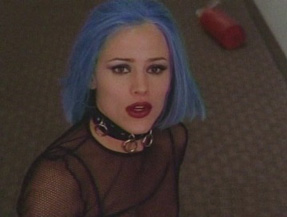|
|
Mythology: AliasBy Martin FelipeJune 9, 2010
Like many a mythology show, Alias enjoyed a brief period of decent ratings before downgrading itself to struggling status for most of its run. This, I would argue, is due more to the complexity of the narrative than to any perceived drops in quality. There are few network shows that are as difficult to pick up midstream than Alias. With characters leading double and triple lives, murky, shifting motivations, criss-crossing subplots, evolving back-stories, and, of course, a dense mythology involving a Da Vinci-meets-Nostradamus prophet named Rambaldi, Alias makes Lost as easy to follow as See Spot Run. It’s this very complexity that made it such a critical success and cult hit in the show’s first couple of years. Well, that’s not quite true. Akin to Lost, Alias is about the characters first and the mythology second. We see the events of the show through the eyes of our heroine Sydney Bristow, and it is through these eyes that we meet her group of pals, most notably her father Jack and her employer/nemesis Arvin Sloan. She’s our emotional lightning rod, grounding us and leading our feelings about the characters, even as the events they experience grow ever more outlandish and fantastic. Thing is, the characters, with the exception of perhaps Marshall, also grow more outlandish as we learn more about them. Layer after layer unpeels over the course of the show’s five seasons, and we form a more and more complex relationship with them all. The complexity of the characters is indicative, however, of the overall narrative and mythology. I’m not kidding when I say that you need a flow chart to figure out exactly what happens in the show’s 100 plus episodes. I don’t mean this as a criticism. More than even Lost, Alias trusts its audience to connect the dots and piece it all together. The ambition and scope of the show is light years beyond what one has come to expect from network programming.
|

|
|
|

|
Friday, November 1, 2024
© 2024 Box Office Prophets, a division of One Of Us, Inc.


